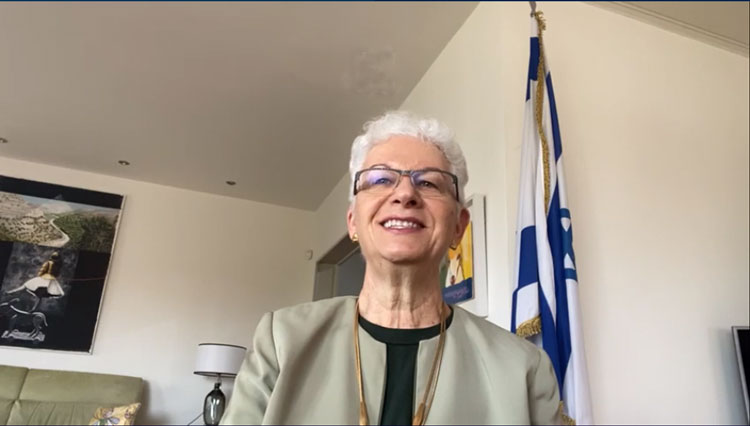Eduardo González
The virtual disappearance of tourist activity due to the pandemic has reduced by at least 75% the income of the Pious Work of the Holy Places of Jerusalem in Madrid, an institution dependent on the Ministry of Foreign Affairs.
The Pious Work of the Holy Places is a non-profit state entity under public law, which depends on the Ministry of Foreign Affairs and contributes to the maintenance of the historical presence of Spain in the Holy Land by carrying out socio-cultural and educational works and the preservation of its own heritage, both abroad and in Spain. This entity carries out its activities in Madrid, Morocco, Israel, Jerusalem, Damascus (Syria) and Istanbul (Turkey), although it operates as a single accounting entity. Its most representative building is the Basilica of San Francisco el Grande complex in Madrid.
According to the section dedicated to “events after the closing” of the report of the annual accounts for the financial year 2019, published this week by the Ministry through the Official State Gazette (BOE), “the pandemic of COVID-19 unleashed during 2020 is going to have important consequences on the activity of the Pious Work of the Holy Places” due to the fact that “the income from tickets to the Basilica of San Francisco el Grande is going to be drastically reduced”.
The Basilica was closed on March 14 as a consequence of the declaration of the state of alarm in Spain and only resumed its activity on July 15, “after implementing all the safety and hygiene measures established by the health authorities”, the document continues. “As of that date, as a consequence of the practical disappearance of tourist activity in Madrid, income is estimated to be around 20-25% of what it used to be in previous years”, it adds. Likewise, “some restoration works that were intended to be carried out in the Basilica will have to be postponed to future years”.
Among the main functions of this institution, besides contributing “to the diffusion of Spain and its culture among the peoples of the Mediterranean and the East” and to “conserve and manage a multi-secular heritage”, is the support of the Basilica-Museum of San Francisco el Grande in Madrid. Besides, the income of the entity is made up of the yields of its assets, both movable and immovable; the transfer of the budget of the Ministry of Foreign Affairs and the income from the entrance fees to the Basilica-Museum of San Francisco el Grande. The Pious Work has only seven employees: three officials of the Ministry and four orderlies who serve in the Basilica-Museum of San Francisco el Grande.
Some of the properties of the Pious Work come from the times of the Crusades, specifically from the campaigns of the kings of Aragon, who in the 14th century obtained from Pope Clement the rights of patronage over some sanctuaries in the Holy Places. The Royal Patronage was reinforced with the granting of the title of King of Jerusalem to Ferdinand the Catholic, and since then, and for centuries, the economic management of the Spanish patrimony in the East fell to the Franciscan Order.
After Charles III decided in 1772 to assume directly the economic management of the Royal Patronage (which allowed the building of the Basilica of San Francisco el Grande, headquarters of the Commissioner of the Holy Land), the process of nationalization reached its culmination with the Royal Decree of June 1853, by which the Pious Work of the Holy Places of Jerusalem was attached to the Ministry of State, the predecessor of the Ministry of Foreign Affairs. The Pious Work is presided over by the Undersecretary of Foreign Affairs, Celsa Nuño.






